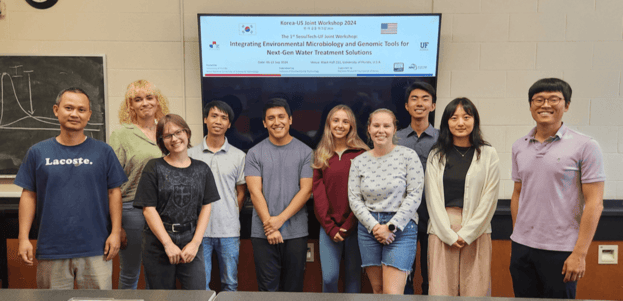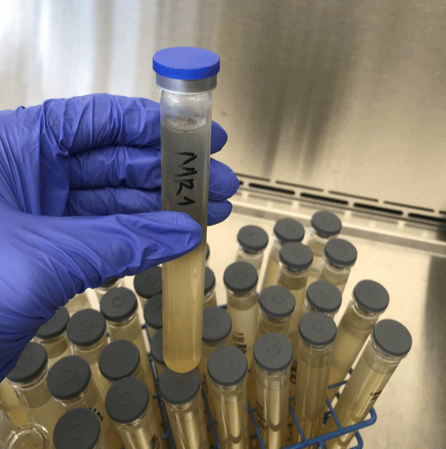Could hurricanes be fueling the spread of microplastics and harmful bacteria in our oceans? With support from a National Science Foundation (NSF) RAPID grant, Chamteut Oh, Ph.D., an assistant professor in the University of Florida’s Department of Environmental Engineering Sciences (ESSIE), is launching a new research project to investigate how back-to-back storms might accelerate the spread of antibiotic resistance — the ability of bacteria to survive treatments like antibiotics — in coastal waters. He suspects that microplastics could act as tiny “rafts” for bacteria, allowing them to grow, exchange genes, and persist in marine environments.

In 2024, Hurricanes Helene and Milton made landfall just two weeks apart — on September 26 and October 9, respectively — triggering severe flooding along Florida’s Gulf Coast. The storms overwhelmed sewage systems, releasing millions of gallons of untreated wastewater into local waterways. Hurricane Milton intensified over unusually warm ocean waters, creating prime conditions for Vibrio bacteria to multiply rapidly. After the storms, the Florida Department of Health reported that cases of Vibrio vulnificus — also known as “flesh-eating bacteria,” which can cause life-threatening infections — more than doubled in the area. Other Vibrio species were also detected.

To explore whether hurricane-driven floodwaters spread antibiotic resistance between freshwater and marine bacteria, Oh and Trinh will search for antimicrobial-resistant freshwater bacteria in coastal biofilms. Biofilms are protective layers where bacteria exchange genetic material, and they often form on microplastics. Since freshwater bacteria typically cannot survive in saltwater, storm surge and the presence of microplastics may help them form biofilms and persist in coastal waters.
The project team, co-led by ESSIE Assistant Professors and CCS affiliate faculty members Elise Morrison, Ph.D., and Sungyoon Jung, Ph.D., will also test whether antibiotic resistant genes (ARGs) have been transferred from freshwater bacteria to marine bacteria. To test this hypothesis, they will employ interdisciplinary analytical techniques, including metagenomic analysis and stable isotope analysis. If freshwater bacteria with resistance genes can persist and pass ARGs to Vibrio, it would suggest that storm-driven flooding could be making Vibrio strains more resistant to antibiotics. Additionally, the team will monitor how long these ARGs stick around in coastal waters by collecting water samples throughout the year.
“If ARGs from freshwater bacteria, potentially released from wastewater, are transferring to marine bacteria, the impact of hurricanes could last much longer than we previously thought,” said Oh. “This could create a worst-case scenario where infections become harder to treat, posing risks to both marine life and human health.”
Oh’s team collected water samples from the Lower Tampa Bay to Charlotte Harbor area in January 2025 and will continue their analysis through September. Their findings will shed light on how hurricanes and pollution interact, guiding efforts to improve water quality and reduce long-term risks.
“While we don’t have strong evidence that the hurricane caused long-lasting impacts yet, many scientific findings suggest that hurricanes can significantly affect water quality for extended periods,” said Oh. “Even if the water appears to return to normal, we can’t say for certain that it is completely safe. It’s important for the public to remain cautious to protect themselves from potential lingering water quality issues.”
—
By Megan Sam
